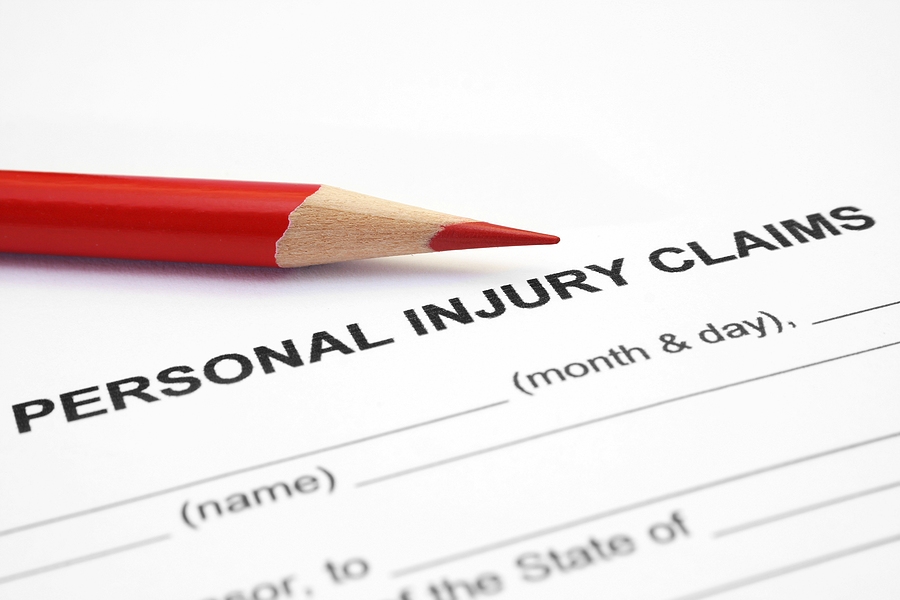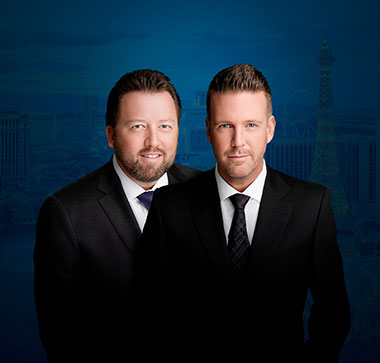If you need to file a personal injury claim because someone else’s negligent actions have caused a serious injury to you, you may need to learn a lot about the ins and outs of the law very quickly. One thing you must consider: the statute of limitations, and how it may impact the time you have to file a personal injury claim against the negligent party.
What is the Statute of Limitations?
The statute of limitations sets out how long you have to file a personal injury claim. The clock starts ticking after your accident—or, in some cases, after you notice the implications of the incident and the injuries you sustained. Once you reach the statute of limitations, unless your attorney finds an exception that can increase the time you have to file your claim, the courts will likely refuse to hear your claim at all, and you will have little chance of recovering the compensation you deserve for your injuries.
The statute of limitations does not govern the time needed to complete your claim. Once your lawyer files your claim, you have essentially stopped the clock: you now have time to investigate the conditions that led to your accident and injuries, establish your right to compensation, and go through the legal process. However, if you do not start the personal injury claim process before the statute runs out, it can make it very difficult for you to seek the compensation you deserve.
Can you File a Claim after the Statute of Limitations Runs Out?
In general, Nevada courts will refuse to hear your case after the statute of limitations runs out. You will not have the right to take your claim to court unless your attorney can identify an exception to the statute of limitations, which may increase the time you have and give you the maneuvering room you need to start moving forward with your claim even after the statute of limitations has expired. In some cases, however, the liable party or the liable party’s insurance company may still offer some compensation, based on the terms of the accident and what led to it.
If you believe that the statute of limitations has run out on your claim, do not give up before you talk to an attorney. Most attorneys will start with a free consultation for your personal injury claim. During that free consultation, you can get a better idea of how much compensation you deserve and how to best manage your claim.
What is the Statute of Limitations on Personal Injury Claims in Nevada?
Under Nevada law for most areas of practice, you have two years after the date of your accident to file a personal injury claim against the liable party. However, several exceptions exist that may shorten or extend the time you have to move forward with a claim.
Medical Malpractice Claims
If you have a medical malpractice claim because a doctor committed an act of negligence in your care, from a doctor who fails to properly diagnose your ailment to a doctor who does not provide the care or treatment you need to treat a diagnosed condition, you may have more time to file your claim.
Medical malpractice often takes longer to come to light, and in some cases, you may need time to recover from the doctor’s negligence before you can move forward with a claim. If you need to file a medical malpractice claim in Nevada, you will typically have three years from the date of the incident to file your claim.
However, you only have one year after the date you discovered the extent of your injury to file a medical malpractice claim. If you need to file a medical malpractice claim in Nevada, talk to an attorney as soon as possible once you encounter complications or undue suffering from the actions performed by the doctor.
Extended Time to Discover the Injury
You may not always realize the extent of your injury immediately after the incident. In some cases, you might not even realize that you have sustained serious injury until well after the accident itself.
Suppose, for example, that you have a car accident and suffer a traumatic brain injury. At the scene of the accident, you write the confusion and disorientation off to adrenaline and the effects of the accident itself. You assume that you will get back to normal within a few days. As you continue to have trouble focusing or experience holes in your memory, you think it may have occurred due to the stress associated with managing the accident claim.
Later, however, you find out that you suffered a traumatic brain injury. The focus and concentration challenges continue for a year after the accident, and you rack up substantial medical bills while trying to discover the extent of your injuries and pursue treatment as soon as possible.
Since it may have taken weeks for you to discover the injury, you may toll the statute of limitations, or put it on hold, until you actually discover your injuries.
Likewise, imagine that you slipped and fell due to a spill in a local store. You get up and feel as though you can walk it off. However, a few weeks later you notice nagging pain in your hand and wrist that does not seem to go away. Your doctor discovers that you broke your wrist in the fall, but did not notice it immediately. You may, therefore, toll the statute of limitations until you discover that injury.
Keep in mind that the discovery clause, which gives you more time to file a personal injury claim if you did not discover your injuries immediately after the accident, states that the statute of limitations begins counting when you should reasonably have discovered the injury. If you ignored your symptoms completely or did not seek medical treatment despite obvious signs that you might need additional treatment, it could prevent you from tolling the statute of limitations, and you may have less time to start your personal injury claim than you think. Contact an attorney as soon after you discover your injury as possible so that you can start the ball rolling on your claim.
Child Injuries
Minors in Nevada do not have the right to file a personal injury claim on their own. Minors cannot sign legal paperwork and cannot take those steps alone. A parent or guardian can file a personal injury claim on behalf of a minor. In some cases, however, the parent might decide not to move forward with a personal injury claim on the child’s behalf. Later, the child may discover serious, even lifelong, complications related to those injuries and elect to pursue a personal injury claim to help pay for treatment or remedying the injury.
In Nevada, the law tolls the statute of limitations until the child turns eighteen. After their eighteenth birthday, a child can pursue a personal injury claim against the party that caused their injuries, even if a considerable time has passed since the initial accident. The extended statute of limitations for child injury claims also allows for the fact that children often heal very differently from adults.
Sometimes, children may heal from serious injuries faster. Other times, however, children may suffer ongoing problems related to their injuries, including problems that may interfere with growth or cause ongoing pain throughout the rest of their lives. Those problems may not grow fully apparent until months or even years after the initial accident. As a result, children may have longer to file a personal injury claim in Nevada.
Since I have Two Years to File a Personal Injury Claim in Nevada, how Long should I Wait before I Contact an Attorney?
Ideally, you should get in touch with an attorney as soon after the accident as possible. You should not wait until the statute of limitations looms near to get in touch with an attorney. Time can quickly get away from you after an accident, and you should take whatever steps you need to ensure that you have the financial and legal protection you deserve. Working with an attorney as soon as possible after your accident offers just one layer of that vital protection.
An Attorney can Appraise the Compensation you Deserve from the Beginning.
Sometimes, you may not know how much compensation to expect following a serious accident. You may believe that you deserve relatively minor compensation, or you might not know how much aid to expect based on the terms of the insurance policy. Many insurance companies will try to take advantage of your lack of knowledge. They may issue a low settlement offer and try to pressure you to accept. If you accept that low offer, it could prevent you from later pursuing the compensation you really deserve.
An attorney, on the other hand, can help you evaluate the needed compensation you require and what steps you should take following the accident. Your attorney can go over the compensation you are entitled to and help determine when to accept a settlement offer. An attorney can also advise you whether the settlement offer covers the costs of ongoing treatment based on the specific needs and costs related to your injuries, and whether or not to continue to pursue negotiations.
The Sooner You Contact an Attorney, the More Evidence the Attorney may Uncover.
Evidence can quickly disappear after an accident, making it very difficult for you to find the proof you need to establish liability. Video footage gets deleted—sometimes not deliberately or maliciously, but just as a result of the natural need to clear up storage over time.
Witnesses’ memories fade and grow increasingly unclear, especially as they rehearse the story or hear other people talk about the incident. An attorney may also have an easier time viewing the exact scene of the accident, including the factors that may have contributed to your injury in the days immediately after the accident.
Consider, for example, a slip and fall accident that occurs in a store because of poor stair maintenance. Immediately after the accident, an attorney may get a look at the damage to the stairs and clearly examine how the accident occurred. Your attorney may even contact an expert witness, like a contractor, who can evaluate the stairs, how they broke, and how soon the company that owns the property should have taken care of maintenance. Soon after the accident, however, the company that owns the property may take steps to repair those stairs.
The company does not want anyone else to suffer a serious injury, and the company may not want to leave that area inaccessible. Once the initial investigation concludes, you may not have the ability to get an expert into that area. If you contact an attorney soon after the accident, they may preserve the area as is, so an expert may evaluate the grounds prior to them remedying the issue.
Your Attorney can Provide Valuable Advice after an Accident.
Most people navigate relatively few personal injury claims in their lives. You may have no idea how to proceed or what steps to take. Everything from what you say to the insurance company to what you post on social media about the accident can have an impact on the compensation you ultimately recover, especially when you need to claim substantial compensation for severe injuries.
An experienced personal injury attorney can help you navigate that process with clear, comprehensive advice that can prevent you from mistakenly reducing the compensation you can recover due to a slip of the tongue, oversharing, or inadequate information.
Did you suffer serious injuries in a Nevada accident due to someone else’s negligence? A personal injury attorney can help you learn more about your rights and aid you in navigating the claim process. Contact an attorney as soon after your accident as possible for a free consultation.


